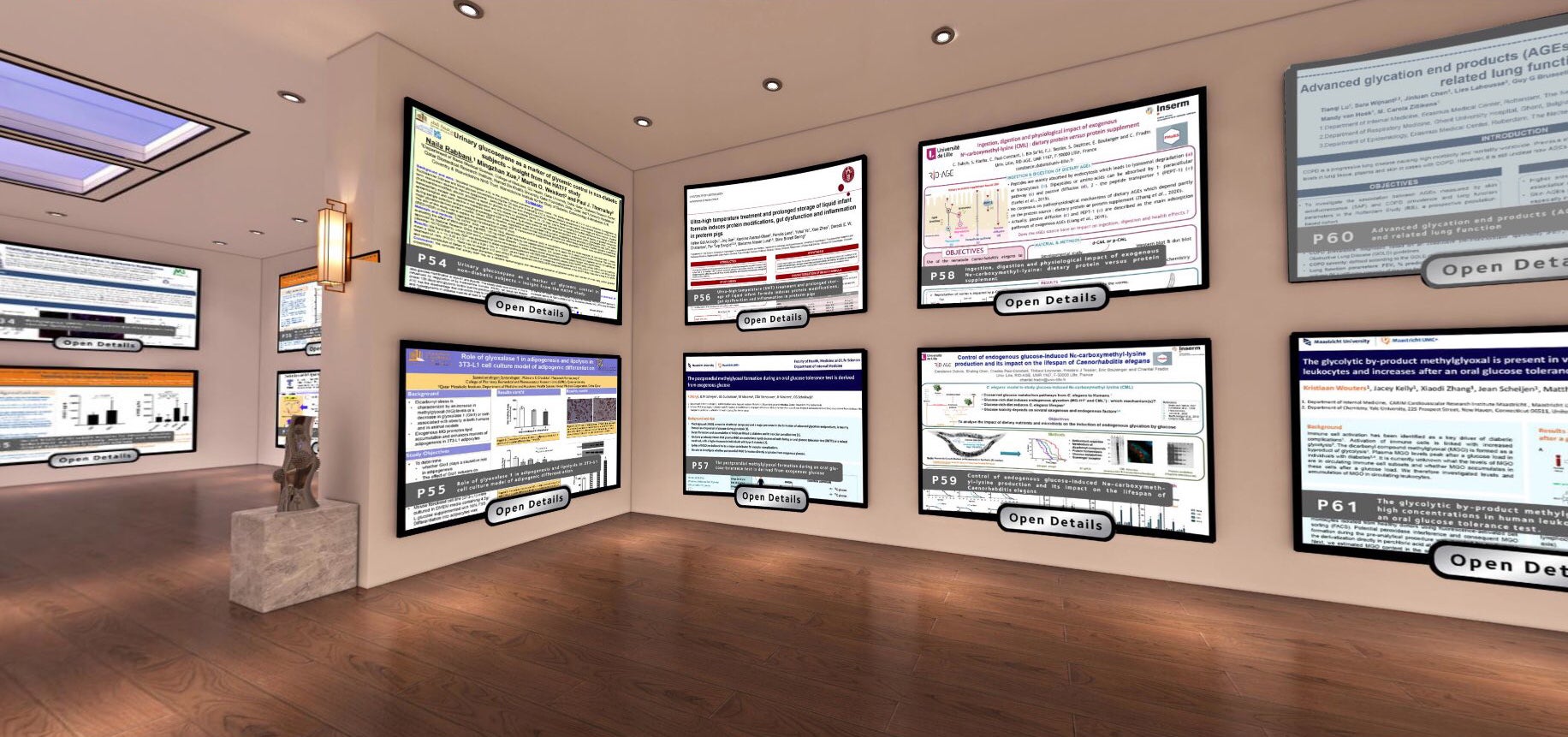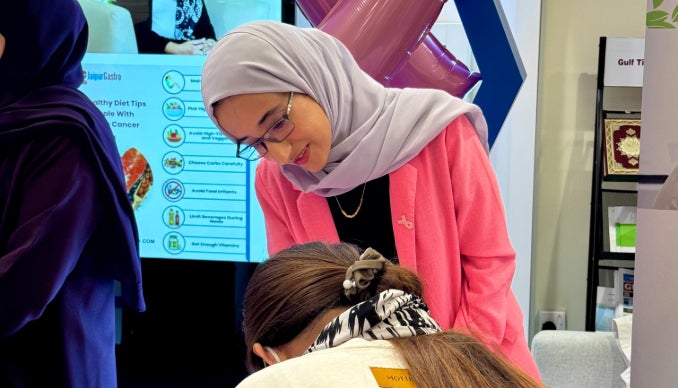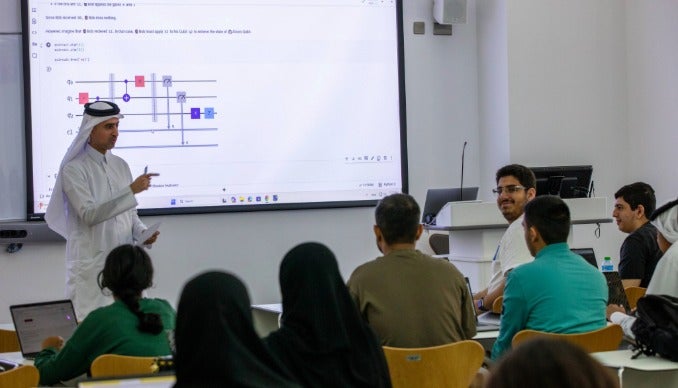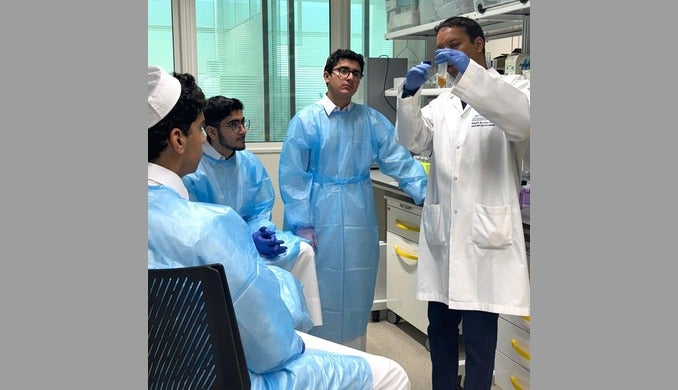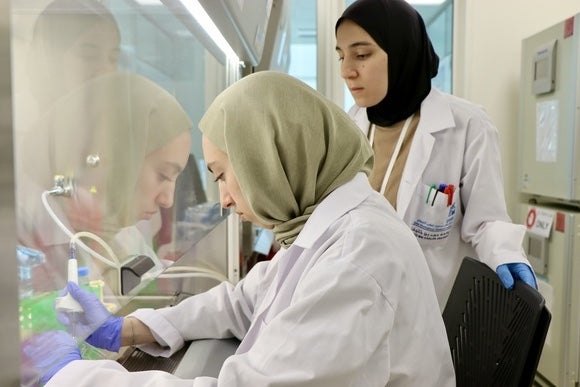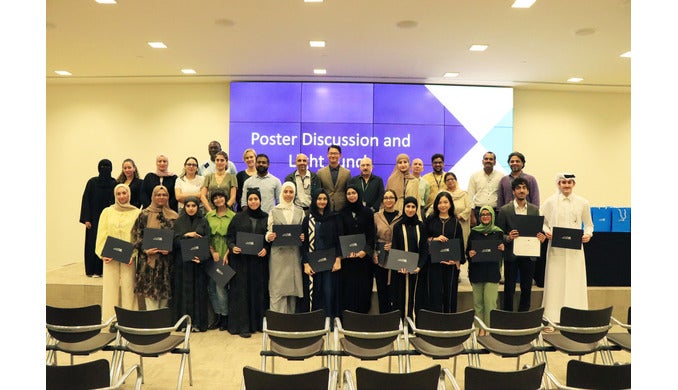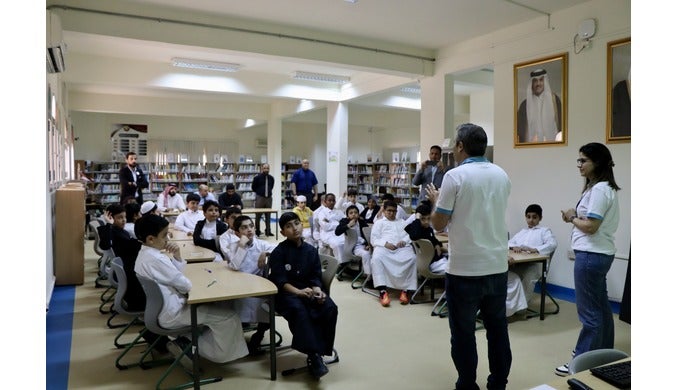International researchers conclude event with a statement of the “grand challenges in glycation research”
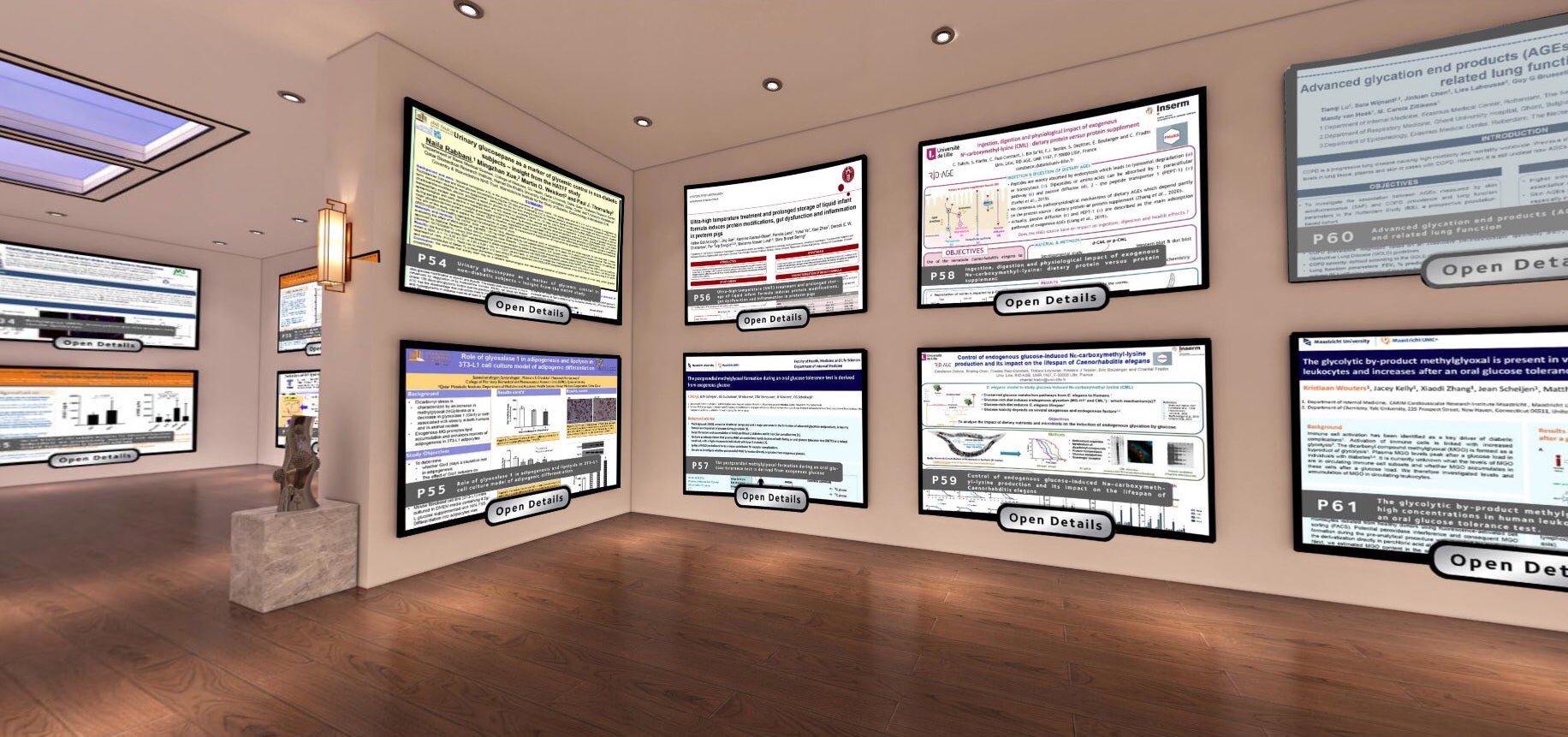
Two prominent scientists from Qatar Biomedical Research Institute (QBRI), part of Hamad Bin Khalifa University (HBKU), and Qatar University College of Medicine presented the 14th International Symposium on the Maillard Reaction (IMARS-14), in a virtual 3D format from September 20-24, with the support of Qatar National Research Fund (QNRF).
The symposium was hosted by the President of the International Maillard Reaction Society (IMARS), Dr. Paul J. Thornalley, Director of the Diabetes Research Center at QBRI, and Professor Naila Rabbani, Chair of the IMARS-14 International Organizing Committee, Qatar University. This was supported by Dr. Omar El-Agnaf, Executive Director of QBRI, on the IMARS-14 steering committee, and Dr. Asmaa Ali J F Althani, Vice-President of Medical and Health Research, Qatar University.
Additional members of the IMARS-14 Local Organizing Committee were: Dr. Abeer Al-Shammari, Research Fellow at the Neurological Disorders Research Center, Dr. Heba Al-Siddiqi, Research Fellow, and Dr. Essam Abdelalim, Scientist at the Diabetes Research Center, QBRI. Other faculty taking part were Dr. Dena Ahmed S. Al Thani, Assistant Professor, Information and Computing Technology at HBKU’s College of Science and Engineering; Dr. Abdelali Agouni, Associate Professor of Pharmacology and Manager of Post-Award; Dr. Sowndramalingam Sankaralingam, Assistant Professor of Clinical Pharmacy and Practice at the College of Pharmacy; Dr. Mashael Al-Shafai, Section Head of Research and Graduate Studies; Dr. Talaat Abdel-Fattah Ahmed, Research Associate Professor at the Environmental Science Center and College of Health Sciences, Qatar University; as well as participants from Sidra Medicine and Hamad Medical Corporation.
IMARS was established as a scientific society in 2005 in response to the growing recognition of the role glycation (the Maillard reaction) plays in food technology, nutrition, and tissue aging in biology and medicine. First identified by the French chemist Louis-Camille Maillard, this chemical reaction can play a role in aging and the development or worsening of many degenerative diseases.
Under the theme 'Protein Glycation in Food, Health, and Disease', the symposium brought together top international researchers, including IMARS’ Founding President, Prof. Vincent Monnier. Plenary sessions focused on glycation in food processing and innovation for a healthy diet; diabetes and diabetic complications; glycation in kidney disease, cancer and mental health; responses to COVID-19, and other topics.
The program featured 36 invited and 18 selected oral presentations, with 68 posters displayed in a virtual 3D walk around experience. IMARS paired up with the European Association for the Study of Diabetes (EASD) Reactive Metabolites Study Group to present state-of-the-art sessions on protein glycation in diabetes. Speakers represented more than 22 countries, including distinguished keynote speaker Prof. Kazutoshi Mori, Lasker laureate, Kyoto University, Japan.
QBRI faculty made several contributions to the discussions, including Dr. Mariam Al-Muftah and Dr. Essam Abdelalim, Scientists; Maryam Al-Motawa, Research Associate; and Dr. Alberto de la Fuente, Dr. Patrick Wijten, and Dr. Mingzhan Xue, Post-Doctoral Researchers at QBRI.
From Qatar University, faculty members and researchers contributing to the discussions included Dr. Hebah Al Khatib, Research Associate at Biomedical Research Center, Mrs. Israa Elbashir, Research Assistant at the College of Medicine, and Dr. Sowndramalingam Sankaralingam, Assistant Professor of Clinical Pharmacy and Practice at the College of Pharmacy. Prof. Hiba Bawadi, Director of the Strategy Program Development Office, and Dr. Talaat Youssef, Research Associate Professor at the Environmental Science Center, were moderated the sessions. Ms. Aisha Al Saei, Research Assistant, College of Medicine, assisted in compiling, arranging and editing conference agenda and abstract booklet.
Qatar glycation collaboration session
The final session consisted of presentations on methods and models in glycation research presented by collaborating glycation investigators from QBRI and Qatar University. Leading international investigators commented on the excellent progress in glycation research in Qatar.
Appointments within IMARS
Prof. Naila Rabbani was nominated and confirmed as President-Elect and Dr. Sowndramalingam Sankaralingam as a member of the IMARS Education Committee.
Prof. Rabbani commented: “I would like to thank the local and international organizing committee for their support. This year we encouraged local medical students to attend, present and write a conference report for IMARS Highlights as an outreach activity. It is encouraging to see our students engaged in such a prestigious conference. Two second year medical students received the IMARS President’s special award for their presentation. I thank fourth year medical student Mr. Ammar Humaidi for opening the symposium with a Quran recitation.”
IMARS-14 concluded with the Doha 2021 Glycation Declaration, a statement of the “grand challenges in glycation research”, which the glycation research community have committed to progressing in the coming years.
Speaking after the symposium, Dr. Thornalley said: “We thank QNRF, the glycation research community and all presenters for supporting IMARS-14. It is encouraging to see established and early career researchers pushing the boundaries of understanding in glycation research and building on this foundation toward new discoveries. The outcomes have relevance for the biotechnology, dietary supplement, pharmaceutical, clinical diagnostics, and food technology industries, as well as preventive medicine, all increasingly concerned with strategies to minimize the unwanted effects of the Maillard reaction. In realizing this goal, the Doha 2021 Glycation Declaration establishes a common agenda on research until IMARS reconvenes in three years.”
Qatar Biomedical Research Institute and Qatar University Health aims to address Qatar National Health priorities; QBRI through its three research centers of excellence studying neurological disorders, diabetes, and cancer. To learn more, please visit qbri.hbku.edu.qa and http://www.qu.edu.qa/health/
Related News

